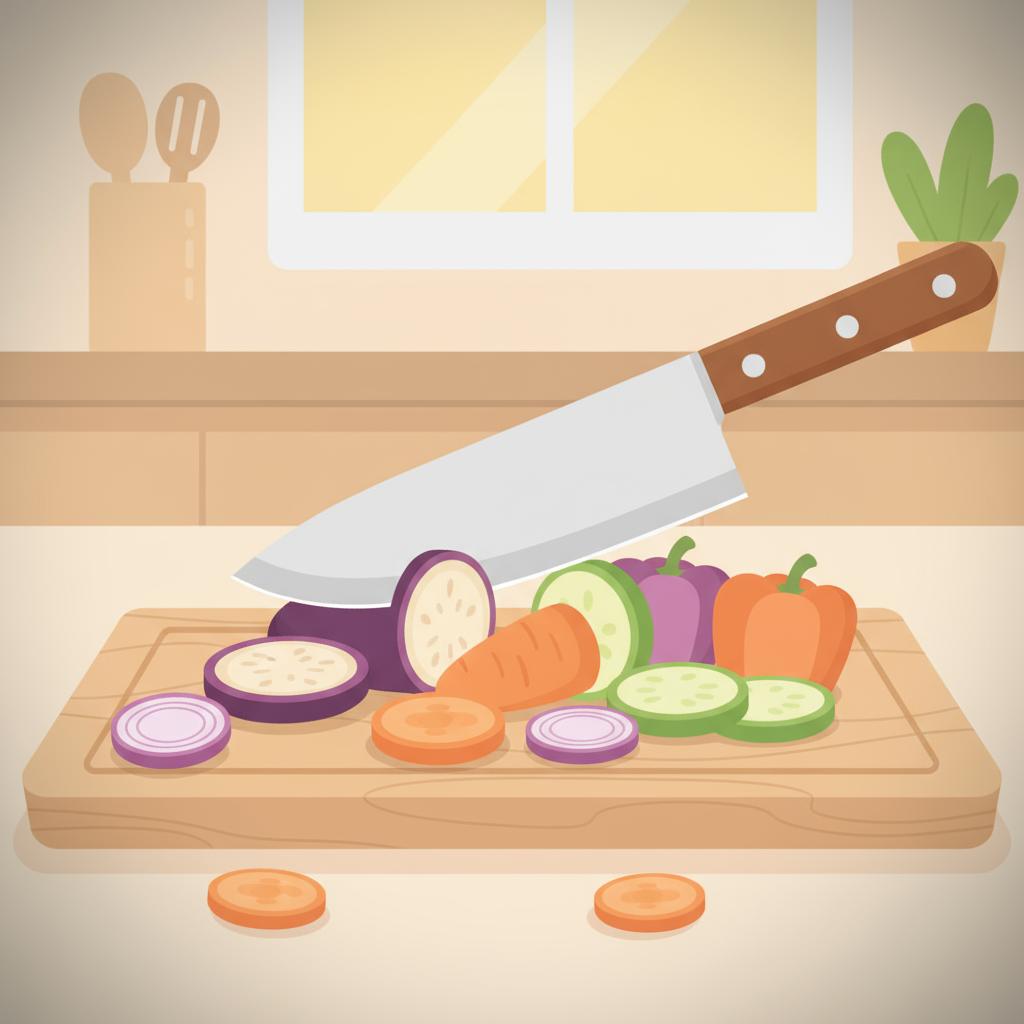Have you ever felt nervous or clumsy wielding a kitchen knife? Maybe your vegetables end up uneven or your fingers feel unsure. Many food fans struggle to improve knife skills, which are essential for confident and efficient cooking.
The good news is that becoming a sharper slicer does not require expensive lessons or hours of practice. With just a few simple daily habits focused on knife safety, sharpening, and precise cuts, you can quickly see real progress.
In this article, you will learn practical ways to improve knife skills through approachable daily habits. These small changes will boost your confidence in the kitchen and help you prepare meals that look and taste better than ever.
Your 3 Daily Habits to Improve Knife Skills
Habit 1 — Keep Your Knife Sharp
Why: A sharp knife is safer and more efficient. It cuts through food cleanly without forcing, reducing slips and mistakes.
How: Spend a couple of minutes each day honing your knife using a whetstone or honing rod. If unsure how, watch quick tutorials or ask a pro.
Cue: Do your honing right after washing your knife to build it into your routine.
Habit 2 — Practice Basic Knife Cuts
Why: Mastering fundamental cuts like dicing, julienne, and chiffonade improves precision. These cuts form the foundation of most recipes.
How: Choose one vegetable each day and practice different cutting techniques slowly and mindfully.
Cue: Practice immediately before prepping meals to make the skill relevant and ingrained.
Habit 3 — Use Proper Knife Grip and Cutting Board Setup
Why: Holding the knife correctly and securing your cutting board prevent accidents and improve control.
How: Place a damp towel under your board to avoid slipping. Grip the knife with your thumb and forefinger on the blade’s sides for balance.
Cue: Always set up your workstation this way before chopping.
Week 1 Schedule
| Day | Focus | Activity |
|---|---|---|
| Monday | Knife Sharpness | Hone your knife after washing it. |
| Tuesday | Basic Cuts | Practice slicing carrots into matchsticks (julienne). |
| Wednesday | Grip & Setup | Arrange cutting board and practice holding the knife properly. |
| Thursday | Knife Sharpness | Hone knife again and test by slicing soft tomato. |
| Friday | Basic Cuts | Practice dicing onions evenly. |
| Saturday | Grip & Setup | Secure board and practice slicing with proper grip. |
| Sunday | Review | Combine all habits while chopping a meal ingredient. |
Troubleshooting
Barrier: Feeling frustrated with slow progress or awkward cuts.
Fix: Remember that improve knife skills takes consistent practice. Break down practice into very short sessions and celebrate small wins.
Barrier: Knife slipping on a wet or unstable cutting board.
Fix: Always place a damp towel under your board for stability. This makes cutting safer and easier.
Barrier: Dull knife causing frustration and bad cuts.
Fix: Commit to honing your knife daily or sharpening it professionally monthly to maintain the edge.
FAQs
Q: How often should I sharpen my knife to improve knife skills?
A: Hone your knife briefly every 1-2 uses to maintain sharpness. For a full sharpening, aim for once every 1-3 months depending on usage.
Q: Do I need expensive knives to improve knife skills?
A: No, improving knife skills is more about technique than tools. A decent, sharp chef’s knife is sufficient when paired with daily practice.
Q: What is the safest way to hold a knife?
A: Grip the blade’s sides between your thumb and forefinger near the handle for control. Keep fingertips curled inward on the other hand while cutting.
Tracking & Motivation Tips
Use a simple checklist or journal to track your daily knife skill habits. Note what you practiced, how it felt, and any improvements. Seeing your progress over time encourages you to keep going. Reflect on the ease gained and meals improved thanks to sharper slicing. Remember, improving knife skills is a journey—small daily steps add up to mastery.
Key Takeaways for Improving Knife Skills
Improving knife skills requires consistent focus on sharpening your knife, practicing basic cuts, and using the correct grip and setup. These simple daily habits build confidence and efficiency in the kitchen while keeping you safe. Remember to be patient and celebrate small progress as you slice your way to becoming a better cook.




